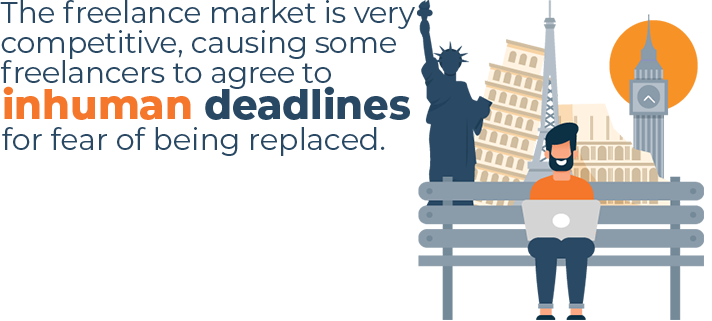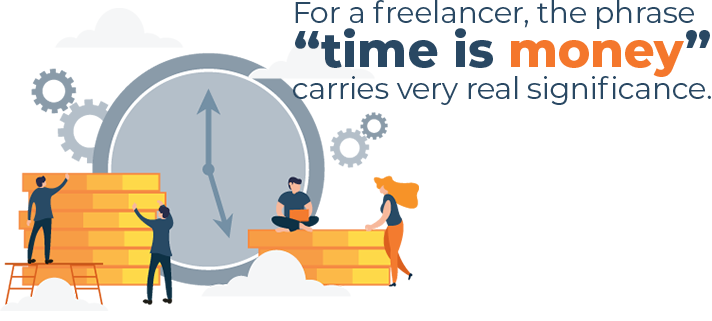Many of us today are living in a career-driven culture.
We eat, sleep, and breathe work.
This line of thinking applies to people no matter the job or how it is completed. Those who travel to an office building often field emails and phone calls after hours. Teachers grade papers and devise lesson plans from home.
But in the modern era, more jobs are moving online, which means your job is always present in the house. How has this shift affected the workforce and, most importantly, our sleeping habits and what can be done about it?
What Is Remote Work?
Well, readers, it’s exactly what it sounds like. It’s the act of working for a company or place of business from anywhere besides that company’s main headquarters. There are lots of different ways this can be achieved.
- Some businesses will have a main office for specific roles — think management or payroll — while creative or data entry positions work outside the office.
- Some places (like Sleep Advisor!) are entirely remote, with all of their staff working wherever they see fit.
43% increase in remote work in the past 4 years.
Working remotely has become incredibly common in recent years, with an increase of 43 percent in just four years and 70 percent of respondents to a global study saying they worked from home at least once per week and 53 percent working remotely half the week or more. There is a very strong probability that this is only the beginning, as more and more businesses look at remote workers as a viable commodity and transition more — if not all — of their jobs offsite.
Remote Work Is Growing Fast
So, why is this new business model so popular? The internet and technology are largely to thank for the rise in home-based employees. Companies are able to cut costs on rent, utilities, food, and other provisions simply by not corraling their staff in one central location.
Another huge benefit is the ability to hire the best and most desirable people for each role, as commuting is no longer an issue. Remote teams can also vastly reduce overhead, as employers do not have to pay for office space or supplies.
Working from home increases the available work pool as well. Some folks with disabilities can work better and do more when they have more control over their job’s environment, and parents of small children or other caretakers can have more flexibility that allows them to look after their loved ones.
Plus, there’s always the nifty benefits of being able to make a living in your pajamas while streaming your favorite cartoons. You can see now why it is so popular. But that doesn’t mean there aren’t any downsides…
Bad Habits Can Hurt Freelancer Sleep
Freelancing or working from home seems like the dream, but when you don’t have a boss (or have 12 of them to answer to) you can very quickly lose sight of your time management. Many freelancers fall into the trap of believing they have lots of free time simply because their job is in the home — they may put off deadlines in exchange for family time or other non-work related duties only to rush (and lose sleep) when their project is due.

The freelance market is also incredibly competitive, causing some freelancers to agree to inhuman deadlines for fear of being replaced, resulting in that same late night crunch. In an attempt to beat the competition (or because some online sites run on a tiny crew) many leave their phones on all night by their bed so they can jump on a project or emergency the second it arrises. In fact, freelancers are so dedicated to their careers, a whopping 81 percent are likely to continue working right through their out-of-state vacation.
81% of remote workers are likely to keep working during vacation.
Lastly, and again largely due to the competitive nature of this career style, freelancers have been known to spend extra time on projects and tasks to try to get their work juuuust right to prevent upsetting their clients. High turnover and short-term projects also lend themselves to constant job searching, eating up even more of a freelancer’s precious sleep time.
Want to know more? Learn how to break bad sleeping habits immediately.
Poorer Sleep Means Poorer Work
So, who cares? You’ll sleep when you’re dead, right? For a freelancer, the phrase “time is money” carries very real significance.

Unfortunately, this attitude can do a lot to wreck your body, and in turn, severely impact your quality of output. Your employer (or employers!) are not likely to care that your dedication to working at all hours is the reason for the decline in quality. They’ll just be disappointed in your results.
Vicki Culpin, a professor at the Hult International Business School, recently conducted research on the effects of sleep deprivation on work and how poor work ethic is ultimately misunderstood. In her report, The Wake Up Call: The Importance of Sleep in Organizational Life, she wrote:
“It is common for managers and colleagues to look at a lack of focus or motivation, irritability, and bad decision making as being caused by poor training, organizational politics, or the work environment. The answer could be much simpler – a lack of sleep.”
In the long run, this lack of proper rest is likely to result in the subpar work that was trying to be avoided in the first place, as sleep deprivation can cause trouble focusing, shorter tempers, communication issues, and may cause people to be more prone to developing a cold.
Tips for Guarding your Sleep as a Freelancer
Does the world of freelancing sound overwhelming to you now? Fear not, there are lots of simple tricks that can help a person working from home to reclaim their bedtime.
- Use blue light filtering settings or apps, along with blue light blocking glasses, to reduce exposure and protect your circadian rhythm.
- Utilize the “Do Not Disturb” setting on your phone to ensure your job does not interrupt your rest, and take a couple days off a week.
- Create zones dedicated to work and sleep. Don’t take your job to bed, use a desk or sofa to keep it out of your bedroom.
- Try yoga, stretches, and meditation to give yourself a quick break between projects. Self-care is important!
- Don’t underestimate the time needed to complete a project or you’ll end up cramming to keep your word! A good rule of thumb is to increase your estimated time by 25-50 percent.
- Avoid caffeine a few hours before bedtime and eat healthy foods. Freelancers often fall into the trap of eating junk foods at their desks, which has been shown to affect sleep quality.
- Create a bedtime ritual to allow yourself to wind down each night and stop stressing about your day. This could help you to fall asleep faster.

Carolyn Burke
Content Writer
About Author
Carolyn has worked as a writer, copyeditor, and social media manager since 2013. Her work can be found at various websites, including Bunny Ears, Crunchyroll, and Cracked. She tries to sleep as often as she can.
Combination Sleeper
Sources and References:
[1] 70% of People Globally Work Remotely at Least Once a Week, Study Says, CNBC
